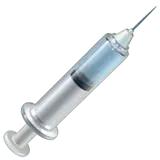Scale insects
soft scale


CLASSIFICATION
Animalia, Insecta, Hemiptera, Sternorrhyncha
ABOUT
Scale insects secrete wax coating and feed on plants. This can lead to reduced growth and higher susceptibility to diseases.
How to treat?
 Biological
BiologicalRemove pests mechanically. Rub the pests off with a soft brush, cloth, or your fingernail, or remove infested part.
Apply ecological products for plant protection (e.g. horticultural soap, neem oil, horticultural oils).
Introduce natural enemies - predators, parasites, or diseases (e.g. lady beetles, parasitic wasps, nematode Steinernema feltiae).
Isolate the infested plant immediately to avoid the infestation from spreading.
 Chemical
ChemicalIf necessary, apply insecticide containing cypermethrin (GHS07: Harmful, GHS09: Environmental hazard).
If necessary, apply insecticide containing deltamethrin (GHS06: Toxic, GHS09: Environmental hazard).
If necessary, apply insecticide containing lambda-Cyhalothrin (GHS06: Toxic, GHS07: Harmful, GHS09: Environmental hazard).
 Disease prevention
Disease preventionEncourage the presence of natural enemies (e.g. lady beetles, lacewings, parasitic wasps).
Apply dormant oil (controls pests and diseases during the off-season).
Inspect new plants for signs of an infestation. Inspect the underside of leaves and stem joints.